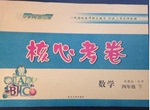题目内容
It’s said that the power plant is now___ large as what it was.
A. twice as B. as twice C. twice much D. much twice
练习册系列答案
 小学同步三练核心密卷系列答案
小学同步三练核心密卷系列答案
相关题目
2.Are there any restaurants in Beijing _____ authentic Mexican food?( )
| A. | serve | B. | that serving | C. | that serve | D. | serves |
6.According to Xinhua News Agency,China's all-out rescue effort has helped remove 30,000Chinese from the recent unrest and violence in Libya.( )
| A. | generally | B. | merely | C. | approximately | D. | extremely |
7.We went into a hall,on walls hung a few pictures of some famous scientists.( )
| A. | its | B. | which | C. | whose | D. | those |

